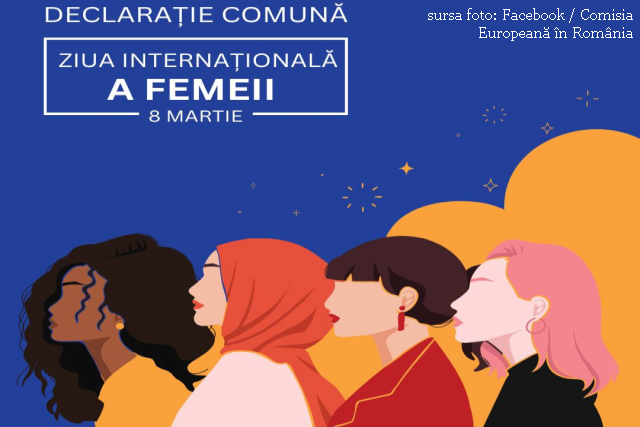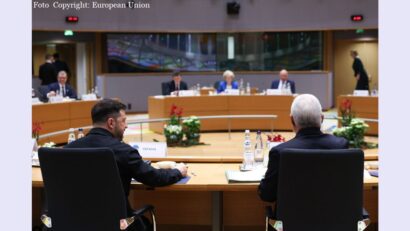On gender equality
Women in public life are particularly targeted by intimidation, hate speech and sexual harassment

Corina Cristea, 09.03.2023, 14:00
The rise in intimidation,
harassment and hate speech against women and girls, including online, requires
immediate and firm action, reads a joint statement signed by over 20 embassies
and the representative office of the European Commission in Romania on March 8, the International
Women’s Day.
We celebrate the
achievements regarding substantive gender equality and the progress
accomplished so far in securing the rights of women and girls all over the
globe. At the same time, we must acknowledge that much remains to be done until
women and girls can fully exercise their human rights, the statement reads.
According to the document, Ensuring
women’s full, equal, effective and meaningful participation in all spheres of
public and private life, including their political representation and
leadership in decision-making processes, is essential to achieving gender
equality.
The signatories also
emphasise that women and girls have the right to live free from violence and discrimination.
However, violence against women and girls is the most common human rights
violation as almost 1 in 3 women has experienced, at least once in her life, physical
and/or sexual violence – a fact unchanged for over a decade. (…) Access to
comprehensive support services and to justice for victims and survivors of
sexual and gender-based violence has to be ensured, they argue.
The fact that women are
not adequately represented in national parliaments and governments, including in
Romania, is not good for democracy, the European Commissioner for Equality Helena
Dalli said in her turn. Early this week, she was on an official visit to
Bucharest, to attend a conference on empowering women in Romania. As the EU
official put it, all women must have financial and economic independence; we must
recognise and appreciate the work and contribution of women, and we must give
them the tools to achieve balance between their personal and professional
lives, she added.
Helena Dalli also pointed
out that in Romania 46% of women, as against only 25% of men, are the primary
care givers to children, elders or disabled members of their families. A fair
sharing of responsibilities would help men and women to have equal
opportunities to work without sacrificing their family life, the EU
Commissioner explained, while also saying that women currently earn an average
30% less per hour than men.
She also discussed the high teenage
pregnancy rate in Romania, which propagates
poverty, and the discrimination against Roma people, both in terms of gender
and ethnicity. The EU official described the situation in which Roma live in
many communities in the European Union as ‘scandalous’ and ‘unacceptable’.
And she also mentioned
that the violation of the rights of people in the LGBTIQ community is contrary
to the spirit of the European Union and warned that EU funding
should not reach the local authorities in areas where these people are
excluded. (AMP)






























